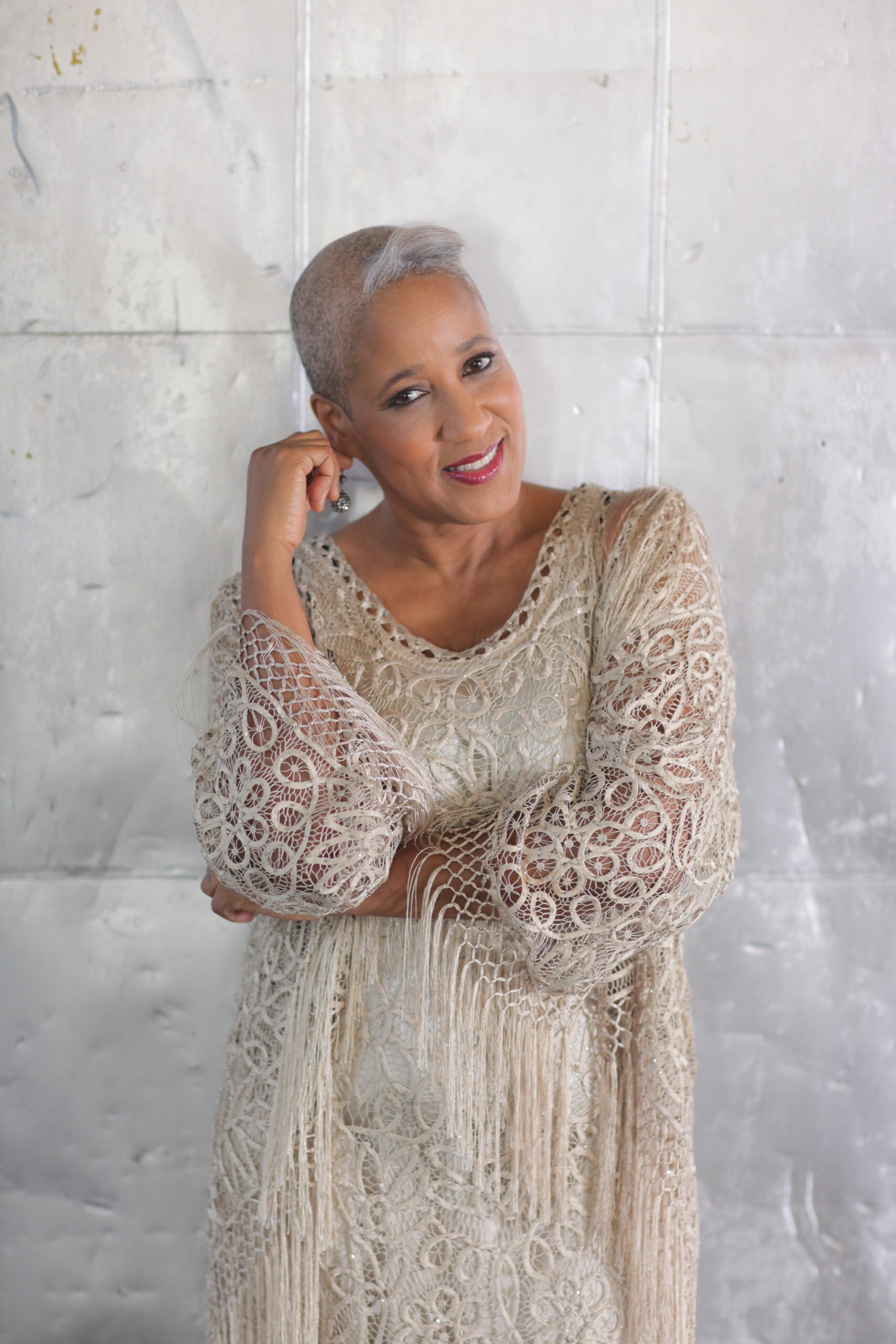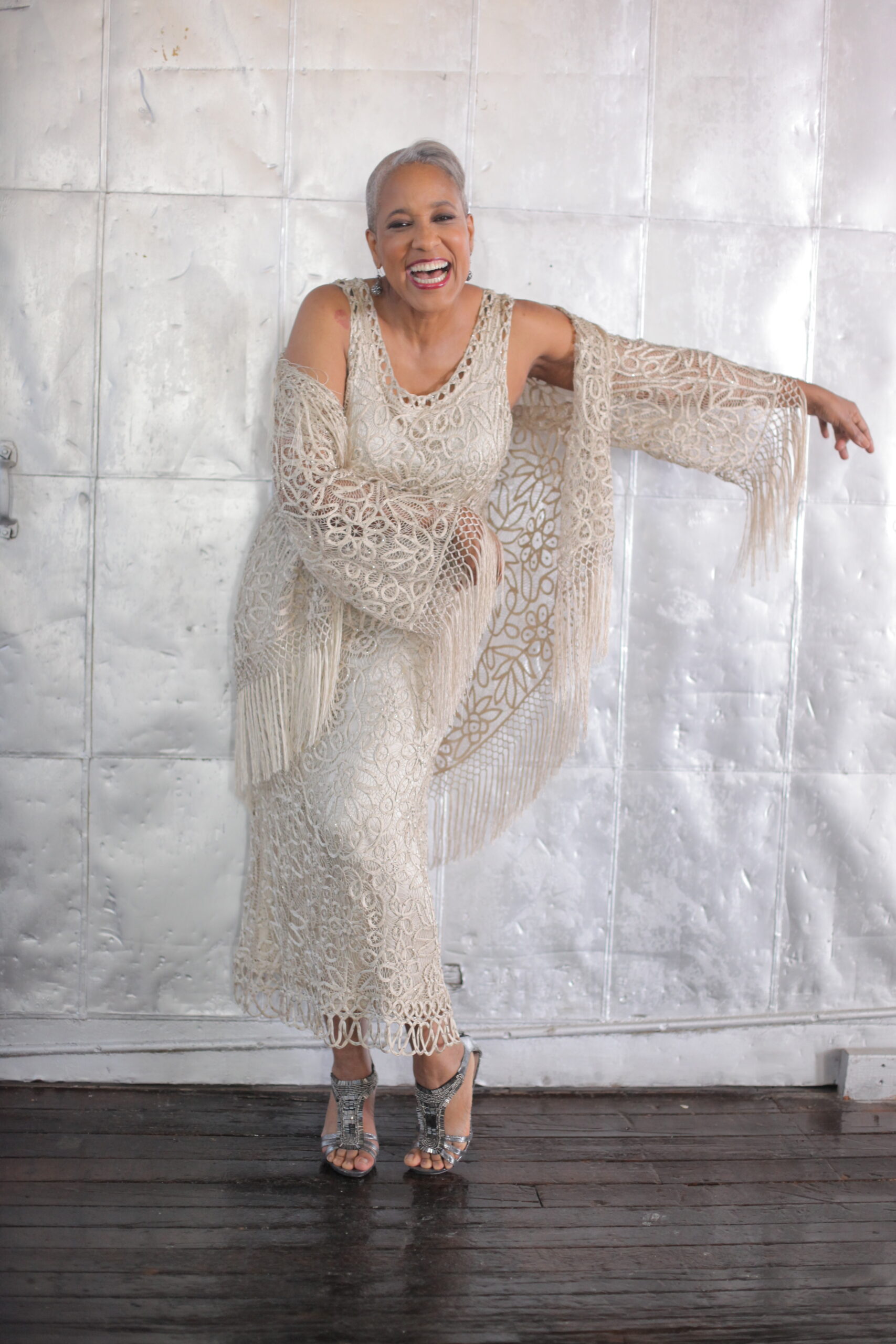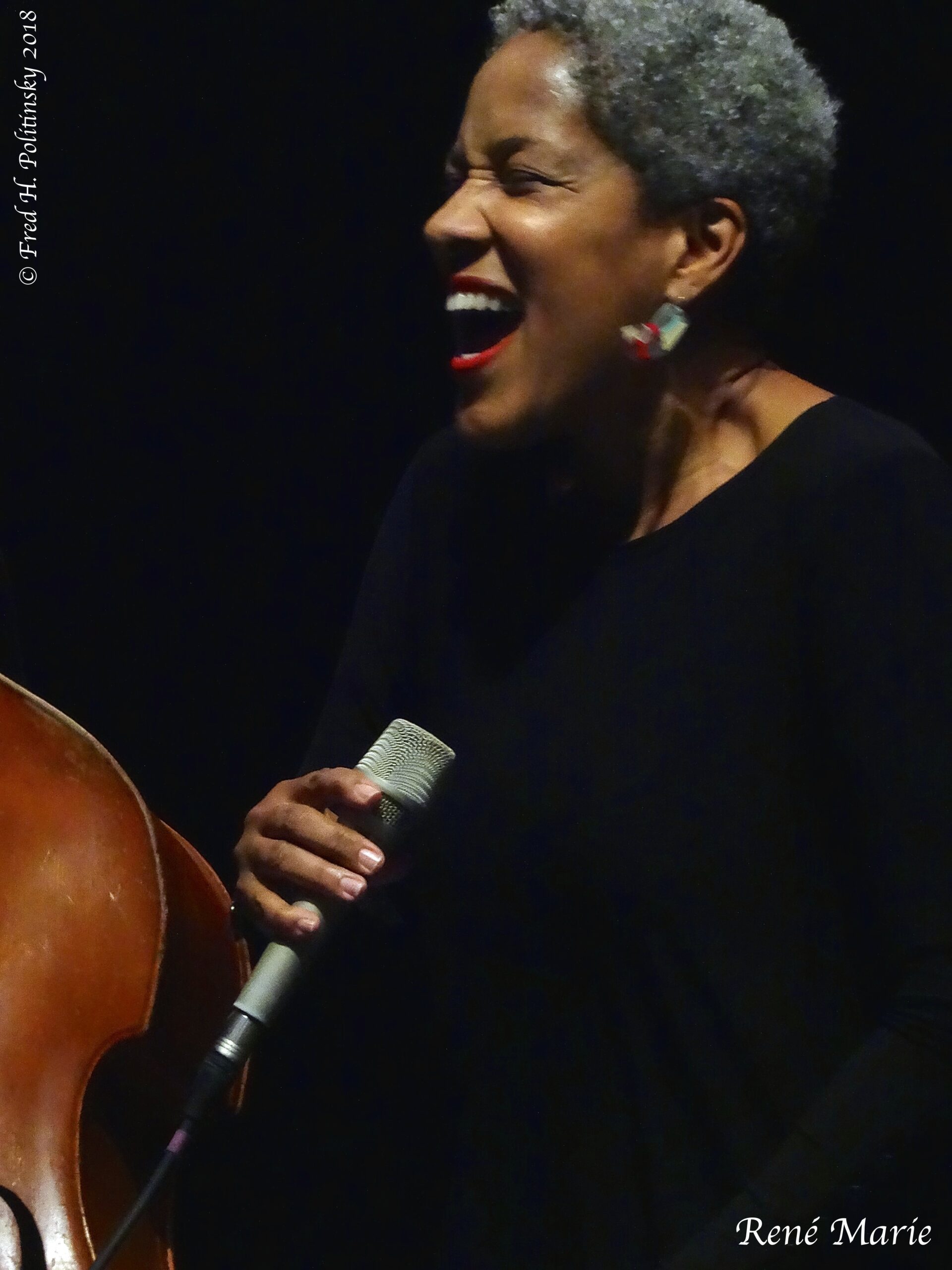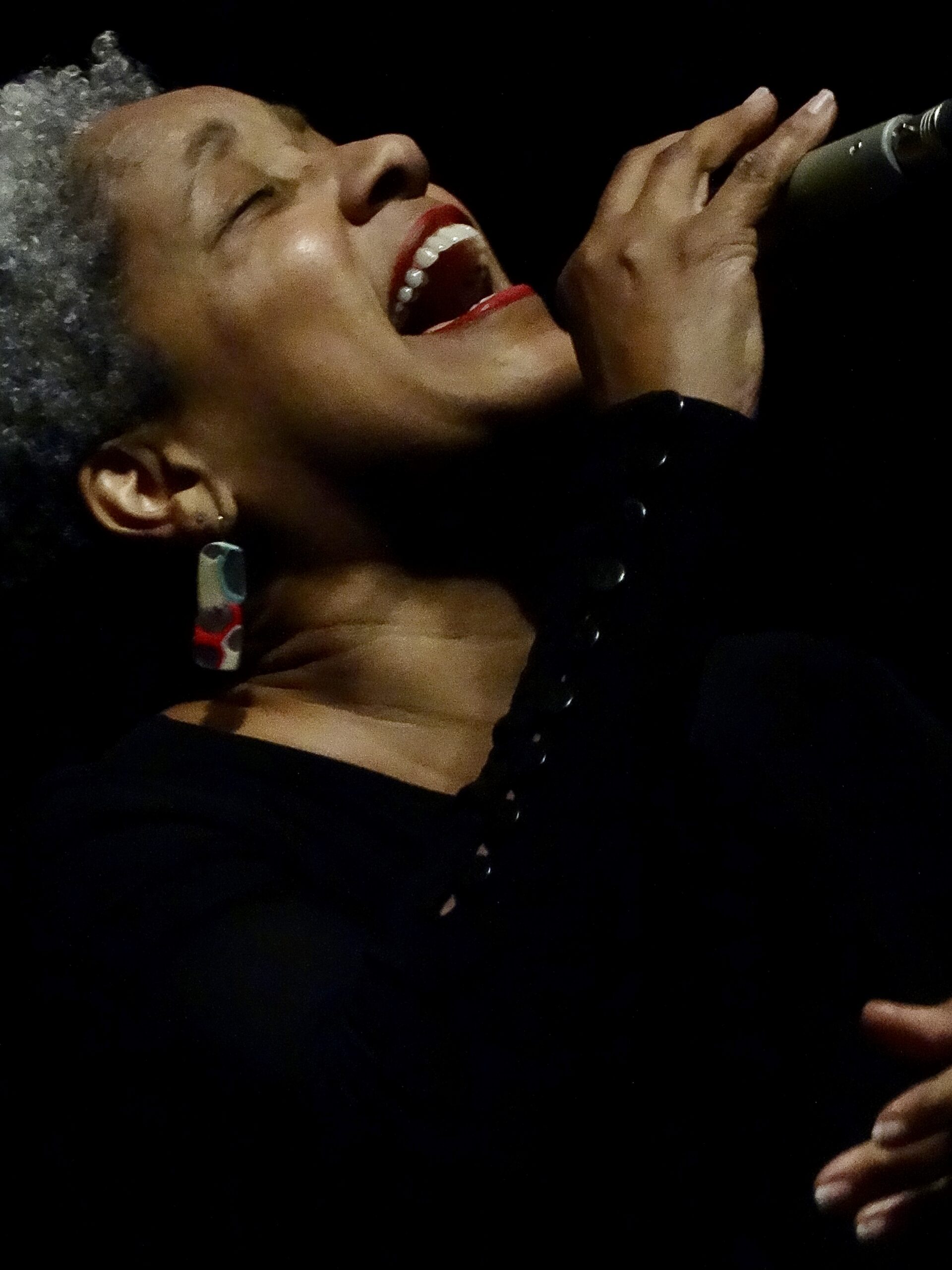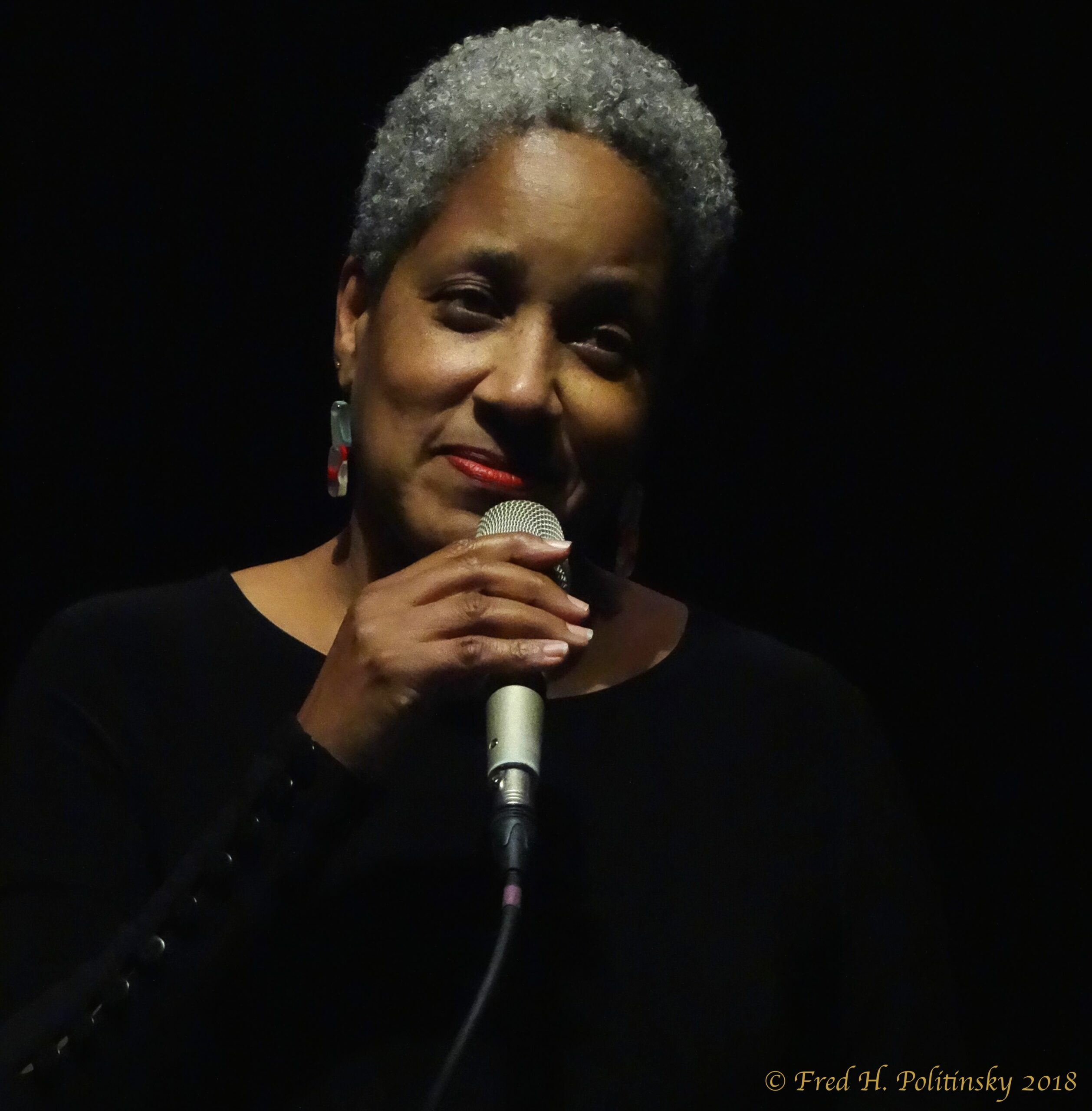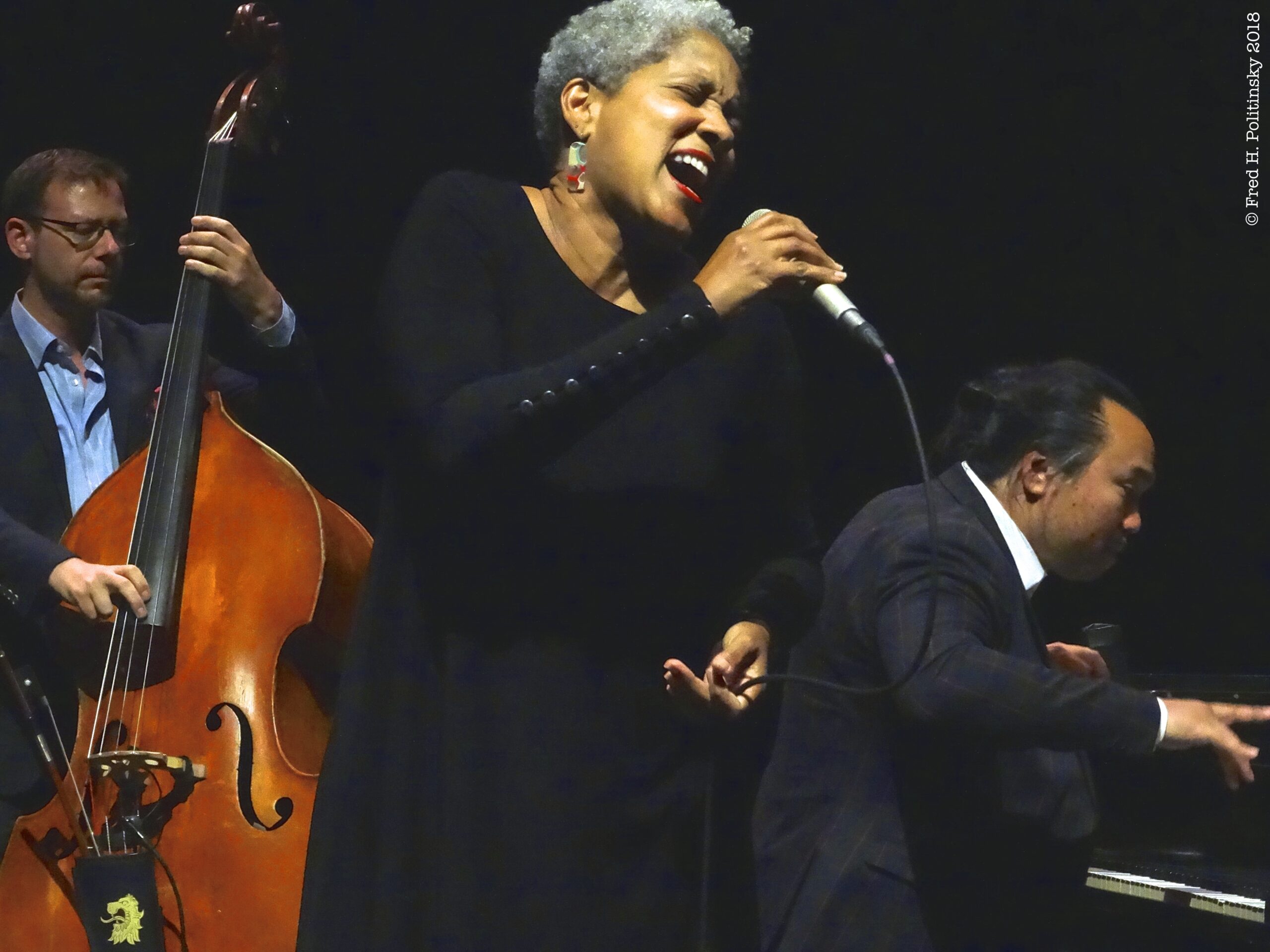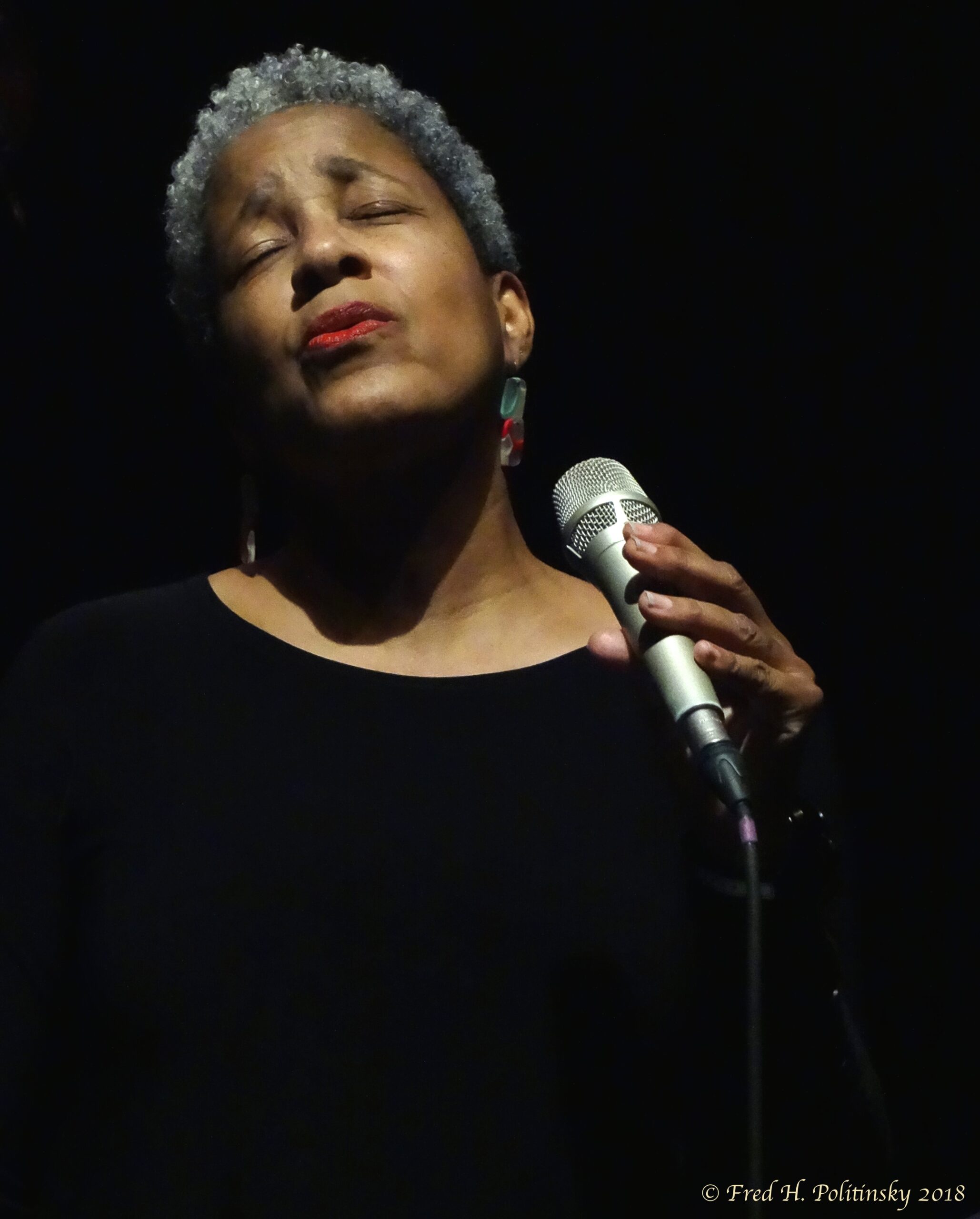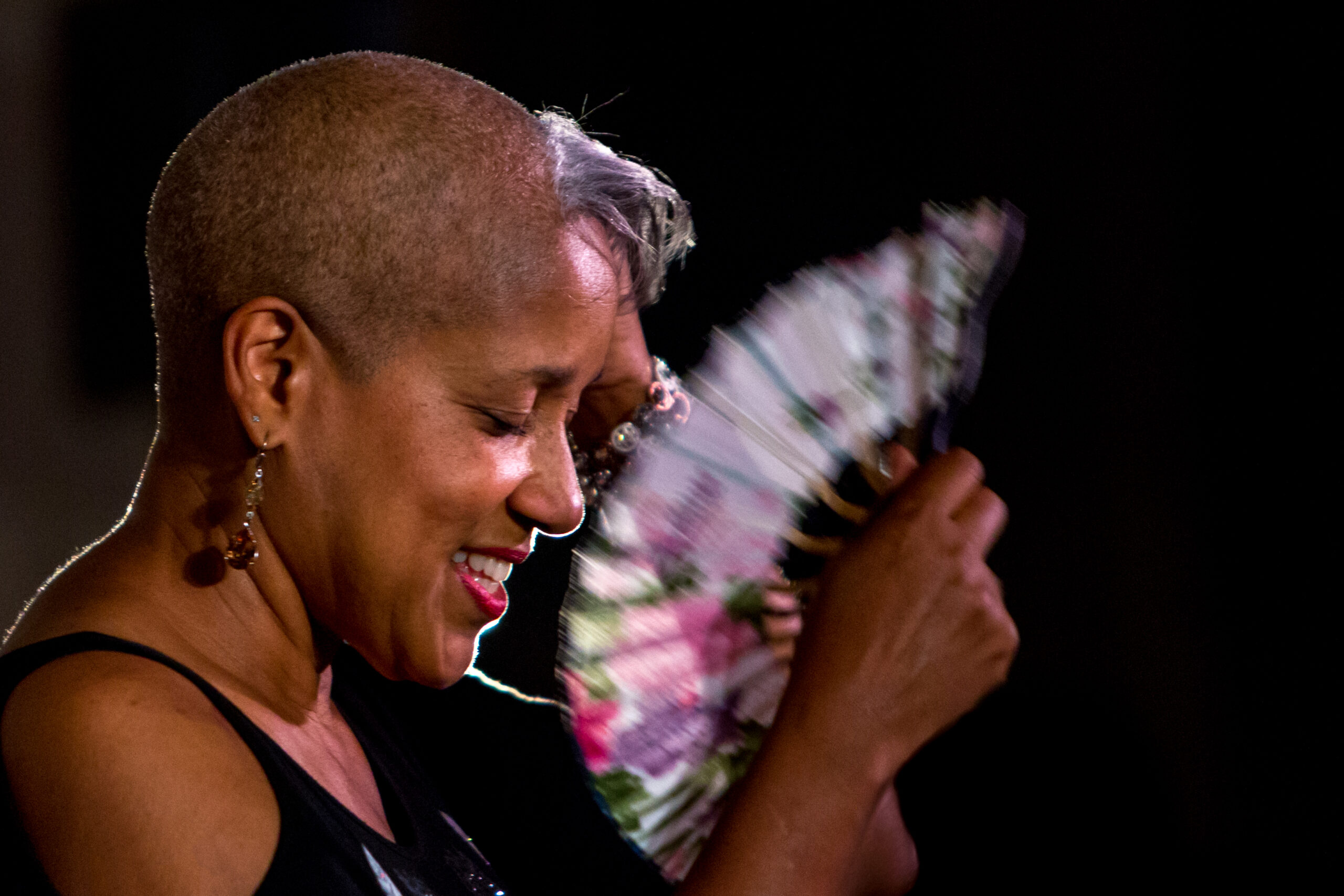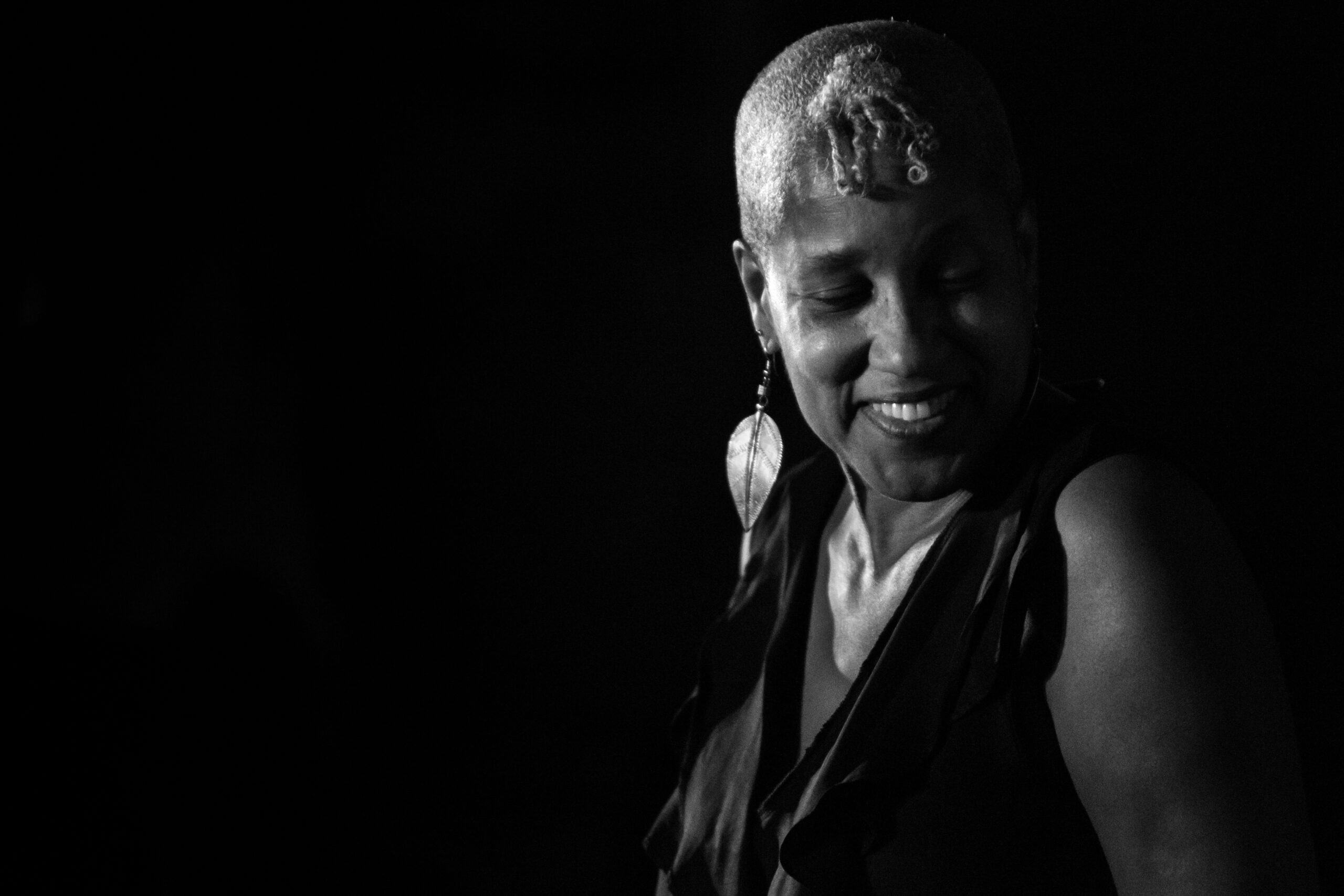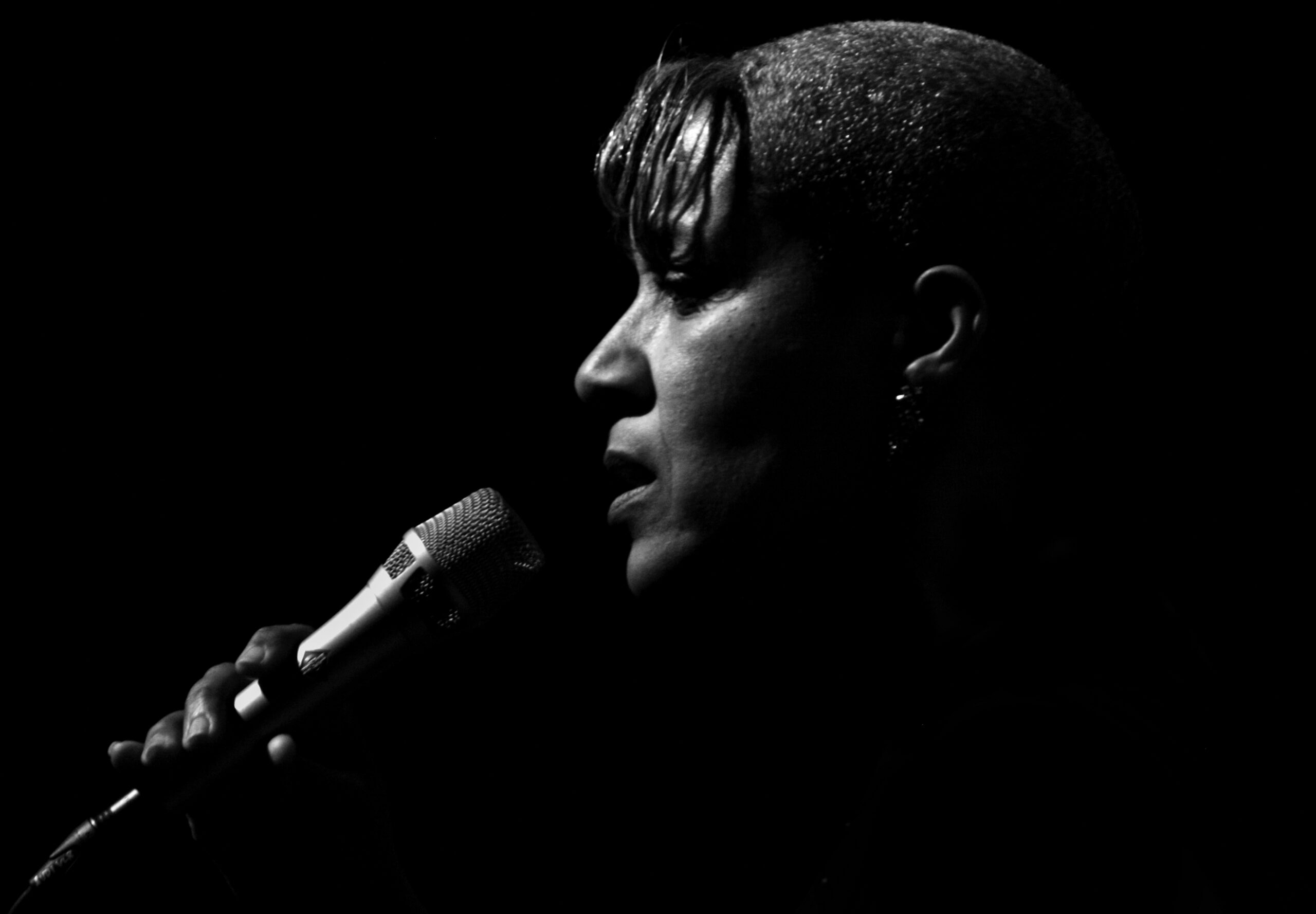René Marie is a very rare artist. A modern vocal icon, her unique artistry has been recognized with multiple domestic and international awards including two GRAMMY Award nominations for Best Jazz Vocal Album. A lyricist / composer / arranger / playwright / actress / educator / speaker / and social justice activist, René is an Americana roots artist with jazz improvisational chops. Influenced by her southern upbringing, she incorporates folk, R&B, country and classical elements into her music and approach, lending her a unique sound and style that have captivated audiences worldwide. Over a span of two decades, 11 recordings and countless festival and concert stage performances, René inspires people with her artistry, her life story and her ability to affirm the power of the human spirit. Her latest GRAMMY recording, Sound of Red (Motéma), celebrates her life story. René exclaims of her current concept, Pain + Wisdom = Beauty™:
An emotional equation colored and shaped
by solitude and shared experience.
We run from Pain. But running is futile.
Three projects: Pain, Wisdom, Beauty.
Exploring the essence of our humanity with
Pain and Wisdom as co-teachers, two sides
of the emotional coin.
Beauty shines a light on the path that brought us here.
Pain. Wisdom. Beauty.
Three integers in a musical journey reflecting
the sum of our experience.
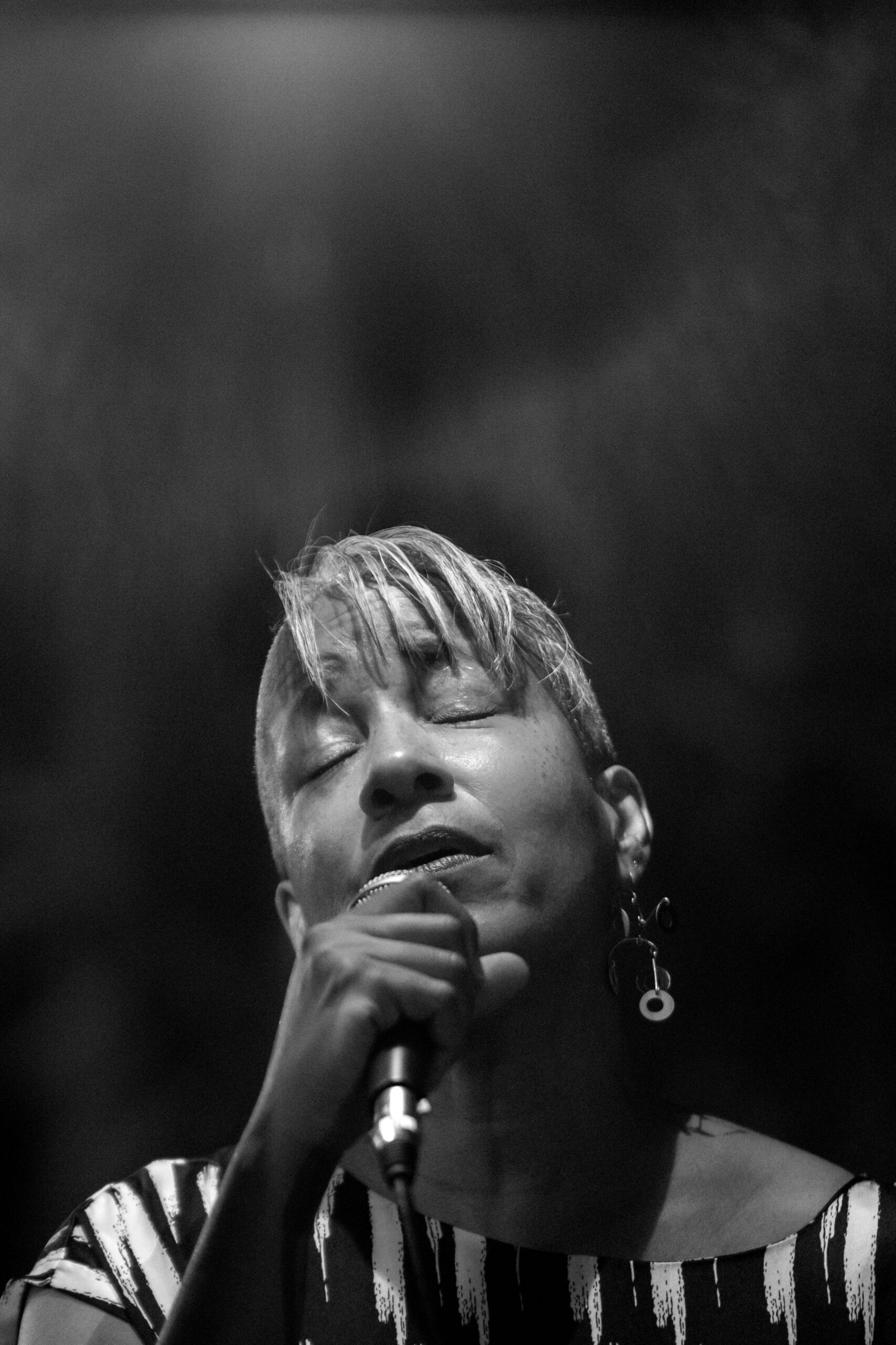
Born the fifth of seven children in Warrenton, Virginia, René absorbed a wide variety of music during her childhood – blues, folk, opera, bluegrass and classical – and studied piano for two years. After her parents divorced, she moved with her mother to Roanoke, Virginia, and began singing in R&B bands. She composed her first original song when she was 15 and by 18, she joined a strict religion that required her to stop singing. She married a former bandmate of the same faith, had two sons and began working at a bank. At age 42, René listened to the encouragement of her older son, who knew she needed to sing again. She started singing for tips one night a week in a smoky hotel bar with the house band, and, within a year, had established her own trio, JazzBone. Initially supportive, her husband quickly became disenchanted with “her success” and issued an ultimatum: stop singing or leave their home. Tension over the issue escalated from emotional abuse to domestic violence. René left the house and ultimately the marriage behind.
Something happened when I started interacting creatively with musicians again. A part of my personality came back to life, a part I had surrendered. The music allowed me to act as my own advocate and defend myself. When my husband gave that ultimatum, I didn’t leave because I wanted so badly to sing. I left because the idea of being with someone who thought it was okay to dictate the terms of my life was untenable.
Over the next 18 months, René made a flurry of monumental life changes. She moved to Richmond, Virginia; divorced her husband of 23 years; left the bank and her religion; produced her first CD Renaissance (1999); won the title role in the Richmond world premiere production of “Ella and Her Fella, Frank,”; and signed to the Maxjazz record label. In 2000 Maxjazz released How Can I Keep from Singing, which immediately grabbed the jazz industry’s attention. Three more acclaimed albums on the label followed: Vertigo (2001), Live at Jazz Standard (2003) and Serene Renegade (2004) along with glowing national press.
In 2005 René moved to Denver and assumed creative ownership of her career, self-releasing and co-producing her 6th release, Experiment in Truth (2007). In 2008, she originated and produced “Two Skirts and A Shirt”, a show of 70’s protest music that toured nationally and featured jazz vocalists Carla Cook and Allan Harris. She wrote and starred in Slut Energy Theory: U’Dean, a heralded one-woman musical drama about overcoming abuse and incest, which premiered at the Cherry Lane Theater in New York City in October 2009. Its soundtrack became her 7th recording. Always focused on healing and giving back, René launched a series of vocal therapy group sessions in 2010 that she called SLAM.
I’ve never been to college or received any professional training. So, at times, I can feel a bit anxious about my ability to convey my personal approach to singing while overseeing the business. I’ve learned that many musicians have these same struggles. However, I also know what I know and that has come from a lot of performing experience and vulnerability on the stage. SLAM helps singers use their natural voice and personality to find their sweet spots as performers. And I do what I can to help my fellow vocalists claim their story and their power in every way.
Voice of My Beautiful Country showcased René’s Americana core and announced her signing with the Motéma label. The stunning 2011 release spanned a century’s worth of American music from traditional to folk to Tin Pan Alley songs and also gave voice to patriotic songs as if composed by disenfranchised Americans. Black Lace Freudian Slip (Motéma) followed that same year and tapped into longing, independence and prayerful introspection. She brought all of her experience and interests together with her lauded 2013 release, I Wanna Be Evil: With Love to Eartha Kitt (Motéma), which was nominated for Best Jazz Vocal Album at the 57th GRAMMY Awards. René highlighted Ms. Kitt’s undaunted commitment to the power of the feminine and to social justice. Her second GRAMMY Nomination in the same category recognized her next Motéma release of all originals, Sound of Red (2017). Always a strong lyricist and composer, she created an 11-song journey that gives insight into profound turning points of her life. Her clever songcraft and sensual vocal delivery made those personal moments not only meaningful but also enlightening to her growing audience.
I wanted to make a record that people could revisit again and again to unlock their emotions. In order to move through our days and our lives, we learn to cover things up. We don’t think we can be vulnerable to pain, loss, confusion, hurt and frustration and keep going. I wanted this record to provide a kind of architectural support for the spirit and help us feel more deeply together.
René has a deeply personal understanding of music’s capacity to change lives. Together with her touring and recording group, Experiment in Truth, she fearlessly explores the nooks and crannies of the human psyche and experience. Songs about inner strength, family ties, self-determination and positivity are on her set list along with those about homelessness, domestic abuse, depression and addiction. René is a frequent star guest of Lincoln Center Jazz Orchestra, Count Basie Orchestra, Chicago Jazz Orchestra, New Orleans Jazz Orchestra and many more that tap into big, brassy celebrations of fun and sass.
I have never forgotten the early lessons learned about the power of music. I try to strike a balance with the right amount of light and dark into every musical offering. I am very happy to be alive today, doing the things I love to do – singing, composing, arranging, writing, teaching – reaching people and unleashing the power of our emotions.
Photos (c) John Abbott
Click for high-resolution versions
Photos (c) Fred Politinsky
Click for high-resolution versions
Photos (c) Antonio Porcar
Click for high-resolution versions




